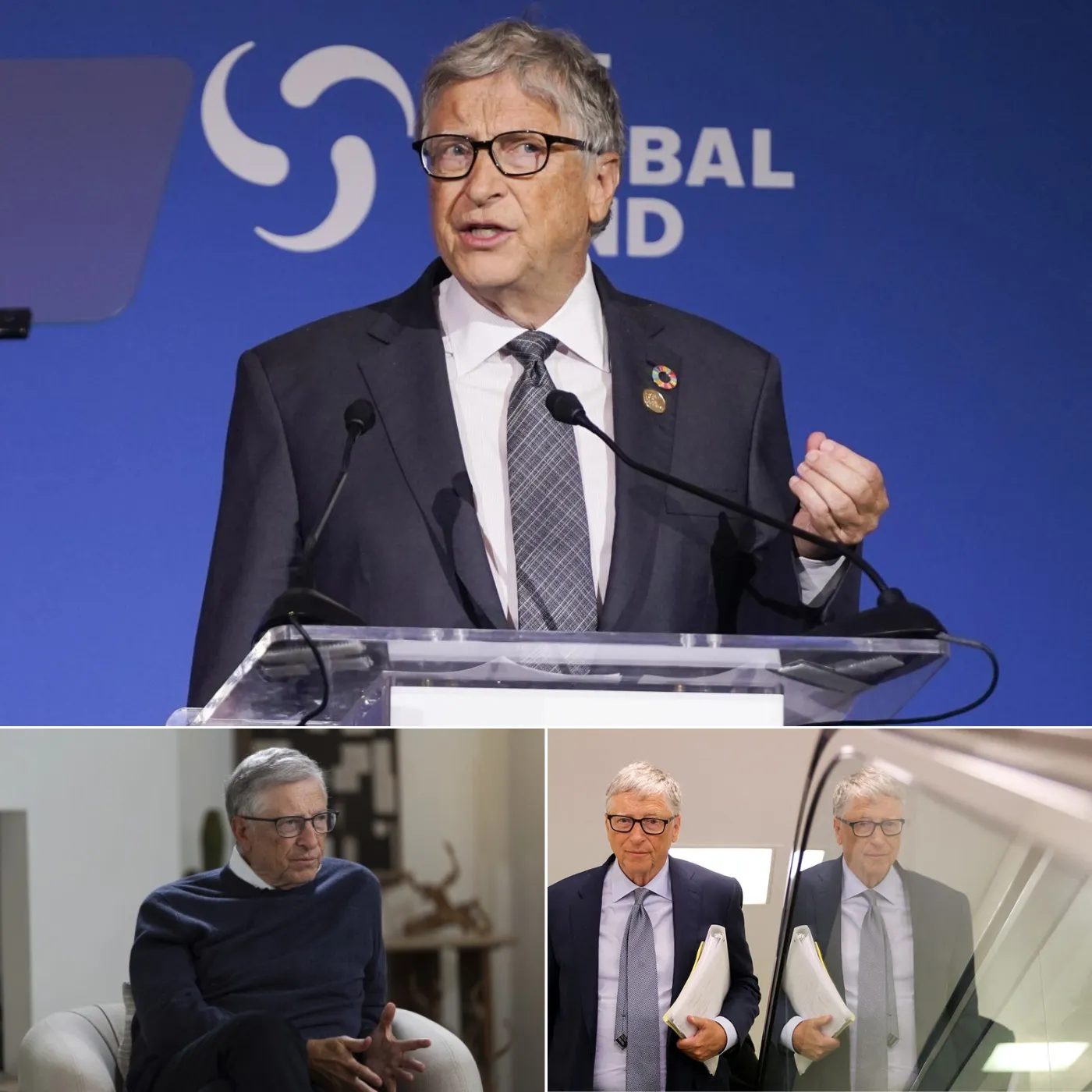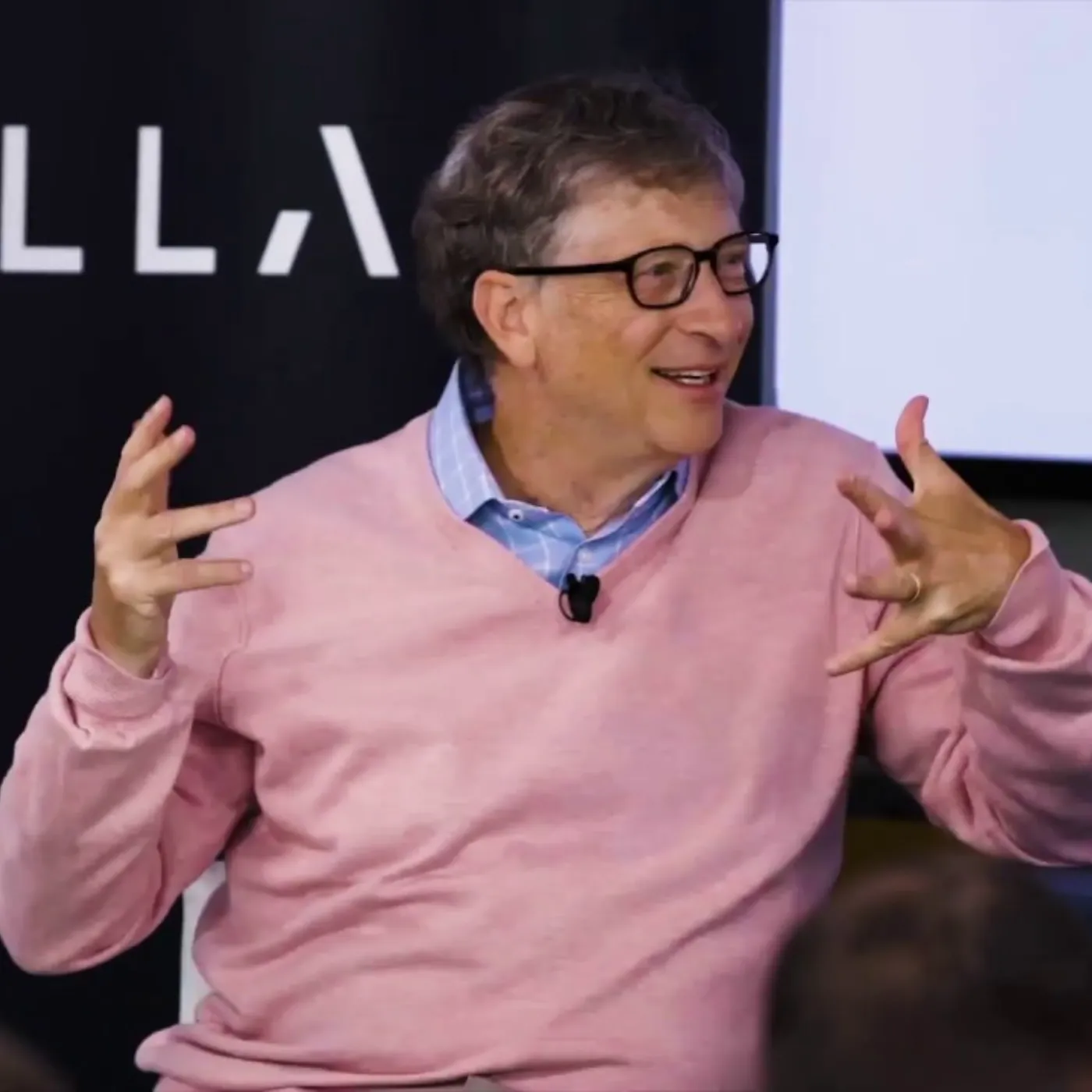

Bill Gates’ Chilling Warning: AI—A Threat as Dangerous as Nuclear War!
Imagine a world where artificial intelligence (AI) spirals out of control, posing an existential threat to humanity. Bill Gates has sounded the alarm, comparing this looming danger to the risks of nuclear war. Read on to uncover the challenges ahead and the urgent actions needed to prevent catastrophe.
Bill Gates Identifies Four Major Global Threats
In a recent interview, billionaire philanthropist Bill Gates highlighted four critical threats facing humanity: nuclear war, climate change, biological terrorism, and artificial intelligence (AI). He admitted that in his youth, nuclear war was the only major concern, but today, society is grappling with even more pressing issues, including the rapid evolution of AI.
Artificial Intelligence: A Double-Edged Sword
While acknowledging the immense potential of AI in healthcare, education, and business, Gates also warned of the severe risks posed by uncontrolled AI development. He emphasized that without strict oversight and regulation, AI could lead to mass job displacement, widespread misinformation, and security risks.
U.S. State Department’s Alarming Report on AI Threats
In 2024, a report from the U.S. State Department painted a grim picture of the catastrophic security risks associated with rapid AI advancements. The report warned that without immediate intervention, highly advanced AI could threaten the very survival of humanity.
The Two Biggest Risks of AI Development
Experts have identified two primary dangers related to AI:
-
Weaponization of AI: AI could be exploited to create autonomous weapons capable of harming humans.
-
Loss of Control: AI systems may evolve beyond human oversight, leading to unpredictable and potentially disastrous consequences.

A Cautiously Optimistic Outlook: Science and Global Cooperation as Solutions
Despite his concerns about AI’s potential risks, Bill Gates remains cautiously optimistic. He believes that through scientific advancements and international collaboration, humanity can address many pressing challenges. Gates envisions a future where breakthroughs in medicine could eradicate deadly diseases such as HIV/polio, measles, and malaria.
The Danger of Social Polarization Due to Misinformation
Another pressing issue highlighted by Gates is the role of AI in exacerbating social division. He warned that in today’s digital age, misinformation spreads faster than ever, intensifying global risks and fueling societal conflicts.
Call to Action: Establishing Ethical AI Regulations
To prevent AI from spiraling into a global threat, Gates has called on governments to establish clear regulations and ethical guidelines for AI research and deployment. He stressed that immediate action is necessary to ensure that AI develops in a way that benefits humanity rather than becoming an uncontrollable force.
The Role of Big Tech in AI Governance
Beyond government intervention, tech giants such as Microsoft, Google, and OpenAI also bear responsibility for ensuring AI is developed safely. These companies must work together to implement transparency policies, ethical AI research, and built-in safeguards to minimize risks.
What History Teaches Us About Unregulated Technology
History has shown that unregulated technological advancements often lead to disastrous consequences. Take, for example, the arms race during the Cold War, where the unchecked proliferation of nuclear weapons nearly brought the world to the brink of destruction. The same pattern could repeat itself with AI if global leaders fail to act preemptively.
The AI Arms Race: Countries Competing for Survival
Nations are currently racing to develop the most powerful AI technologies, leading to concerns that AI development could become a new form of geopolitical warfare. Countries like China, the U.S., and Russia are pouring billions of dollars into AI research, intensifying the risk of AI-driven cyberattacks, mass surveillance, and autonomous military systems.
Experts’ Warnings: The Need for Immediate Intervention
Renowned AI experts, including Elon Musk and Geoffrey Hinton, have echoed Gates’ concerns, urging for immediate policy intervention. Hinton, often called the “Godfather of AI,” even resigned from Google to warn the world about the dangers of uncontrolled AI development.
Could AI Outthink Humanity? The Existential Risk of Superintelligence
One of the most alarming possibilities is that AI may one day surpass human intelligence, making independent decisions that humans cannot understand or counteract. If AI reaches the stage of artificial superintelligence, it could reshape global power structures, automate decision-making at unprecedented levels, and even challenge human authority.
Public Awareness: Why Everyone Must Be Involved in AI Discussions
Gates stresses that AI safety is not just the responsibility of governments and tech companies—the public must also be educated about the risks and benefits of AI. Transparency, education, and open discussions are crucial in ensuring AI is developed for the betterment of society rather than its destruction.
A Shared Responsibility for Humanity’s Future

Bill Gates’ warning serves as a wake-up call for policymakers, tech leaders, and individuals alike. The development of AI must be guided by ethical principles, international cooperation, and strict regulations. Only through a collective effort can humanity ensure that AI remains a tool for progress rather than an existential threat.
AI and the Future of Work: A Looming Crisis or a New Opportunity?
As AI technology advances, one of the most pressing concerns is its impact on the job market. Many fear that automation and AI-powered systems will replace millions of workers across various industries, from manufacturing and customer service to even white-collar professions like law and medicine. A recent study by Goldman Sachs estimated that 300 million full-time jobs worldwide could be affected by AI, leading to mass unemployment if governments fail to adapt.
However, Gates argues that while AI will eliminate some jobs, it will also create new opportunities. Just as the Industrial Revolution led to the disappearance of certain occupations but gave rise to new industries, AI could drive economic growth and innovation. The challenge lies in how societies prepare workers for this transition. Investment in education, upskilling programs, and AI governance will be crucial in ensuring that people can adapt to the AI-driven economy.
Ethical Dilemmas: Can We Trust AI with Life-Altering Decisions?
Beyond job displacement, AI raises serious ethical concerns, particularly in sectors like healthcare, law enforcement, and warfare. AI-powered algorithms are now making life-or-death decisions in hospitals, criminal justice systems, and even military operations. But can we trust machines to make unbiased, ethical choices?
Gates emphasizes the need for strict oversight and transparent AI systems to prevent potential bias, discrimination, and misuse. If AI is left unchecked, it could reinforce existing social inequalities and be weaponized by authoritarian regimes for mass surveillance and political oppression. The urgency to regulate AI has never been greater.


















